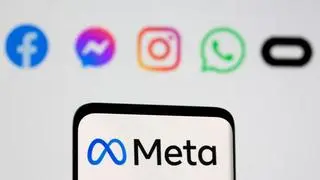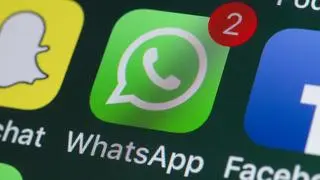Twitter’s shocking decision to temporarily block hundreds of accounts in India at the behest of the government has raised concerns about the power exerted by the government over social media companies and the inability of social media behemoths to take an independent stance. The manner in which the orders were issued by the government is still keeping people in the dark about why this entire episode unravelled in the first place.
Late afternoon on February 1, over 250 accounts and tweets on Twitter - typically associated with the farmers’ protests in India - started getting blocked en masse, in response to what Twitter described as a “properly scoped request from an authorized entity.” While access to these accounts were reinstated a couple of hours later, the damage was done — that the social media giant had blocked access to hundreds of accounts at the behest of the government stoked fears of censorship.
Investigative news magazine The Caravan, activist Hansraj Meena, actor Sushant Singh, political commentator Sanjukta Basu, CPI(M) leader Md Salim, several farmer leaders, as well as accounts linked to the farmers’ protest like Kisan Ekta Morcha and Tractor2Twitr are just some of the accounts which were ‘withheld’ by Twitter.
“It is a major concern when tech companies - which wield enormous power in this age in disseminating information and shaping opinions - yield to pressure from the government. It seems as if the platforms go by different standards in the global south. The issue here is, entire accounts were suspended and not just tweets, ” Prasanth Sugathan, legal director of the digital rights organisation, SFLC.in, told BusinessLine.
Neither the government nor Twitter has offered an explanation as to how these accounts were earmarked to be blocked.
According to Twitter, pending its discussions with the regulatory authorities, it temporarily withheld these accounts in India “under our Country Withheld Content policy in response to a valid legal request from the Ministry of Electronics and Information Technology.” During its subsequent meetings with the officials, according to Twitter, it conveyed that the accounts and tweets in question constitute free speech and are newsworthy, leading to revoke the decision to withhold the accounts.
“If a company receives legal requests from government actors that they know is clearly illegal or overboard, they should contest it, they should push back on it, and even if they comply with it, they should immediately seek legal means to challenge it or take recourse against it - including the court - because that is exactly the nature of what the Indian legal system and democracy provides for; and what companies have said they will do so in the United States or other countries,” said Raman Jit Singh Chima, Asia Policy Director and Senior International Counsel at Access Now.
Even if they have no option but to comply with the government’s order, they should comply under protest and take it to court, Chima emphasised.
BusinessLine tried reaching out to the government, but did not get any response.
“These Twitter accounts (which were blocked) - like Caravan and Kisan Ekta Morcha - have been banned by the Meity, under Section 69A of the IT Act,” Internet Freedom Foundation, a digital liberties organisation, said on Instagram.
What is pertinent would be to understand why the Meity issued these orders in the first place, what threat they saw these accounts posing, what the purpose of blocking the accounts for a couple of hours was, as well its response to the consensus that it misused its powers under Section 69A of the Information Technology Act. These queries sent to Meity went unanswered as of press time.
Section 69A
Section 69A is a legal provision that gives the government power to issue directions to block public access to any information available through a computer resource, it explained. This comes with a confidentiality requirement, which means that when Twitter is made to block access to these accounts, we cannot know the reason for blocking and by whom it was directed, it further stated.
“We need transparency in matters of freedom of speech. This creates a bizarre situation where citizens have the right to challenge blocking of online content, but are unable to do so because they don’t have access to legal orders,” said IFF. “Section 69A enables secret censorship by the executive branch of the government without any independent judicial oversight.”
There is also the fact the process to block content under Section 69A is all civil service controlled, with no role of an independent person to review, and empirically, no role of judges as well, Chima said. The fact that Meity claims that its orders for social media and website takedowns or blocking is confidential is unconstitutional, and the government needs to be challenged on this, he said. “Today, you cannot get access to the total number of blocking orders on websites (and social media) issued by the government because they keep it confidential.”
Before access to its account was reinstated, The Caravan took to Instagram to say that it had not received any prior information from Twitter about the matter.
This act of even temporarily restricting a news organisation from its social media profile is unacceptable as it is the 21st century equivalent of blocking a printing press, said Chima. “(Similar to) what happened in the Emergency, they're doing in an indirect, perhaps ham-handed manner, when it comes to web censorship powers.”
Twitter statement
In its official statement on the issue, Twitter said, “Many countries have laws that may apply to Tweets and/or Twitter account content. In our continuing effort to make our services available to people everywhere, if we receive a properly scoped request from an authorized entity, it may be necessary to withhold access to certain content in a particular country from time to time. Transparency is vital to protecting freedom of expression, so we have a notice policy for withheld content. Upon receipt of requests to withhold content, we will promptly notify the affected account holders (unless we are prohibited from doing so e.g. if we receive a court order under seal).”
On February 2, Sanjukta Basu - whose Twitter account was also withheld - took to Twitter to say: “Let this be clear that not a single Twitter account blocked in India for 5 hours yesterday had spread any fake news or broke any law.”
We are at a pivotal moment in history, where we need to hear our farmers’ stories, as stated by IFF on Instagram. “But the regressive Section 69A has allowed the blocking of these voices, and has made provisions for complete opaqueness on the matter. Transparency is the key to healthy democracy”
There is a difference in the way tech platforms moderate content in the global south and in the developed world, Sugathan noted. “The platforms have been accused of toeing the Government line in India and the global south. Facebook failing to act on hate speeches in Myanmar is a case which is often talked about. We have also seen in India how they have not acted on hate messages during the Delhi riots and CAA protests.”
Ever since 2015, the government has been using the Section 69A of the IT Act at an accelerating pace, said Chima, which is further aggravated by the dearth of transparency around it.







Comments
Comments have to be in English, and in full sentences. They cannot be abusive or personal. Please abide by our community guidelines for posting your comments.
We have migrated to a new commenting platform. If you are already a registered user of TheHindu Businessline and logged in, you may continue to engage with our articles. If you do not have an account please register and login to post comments. Users can access their older comments by logging into their accounts on Vuukle.